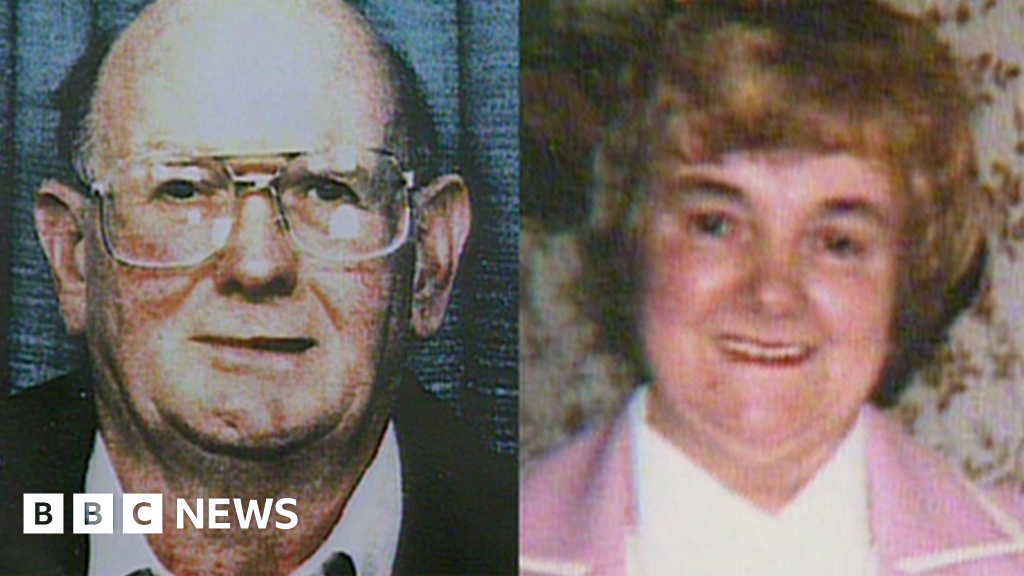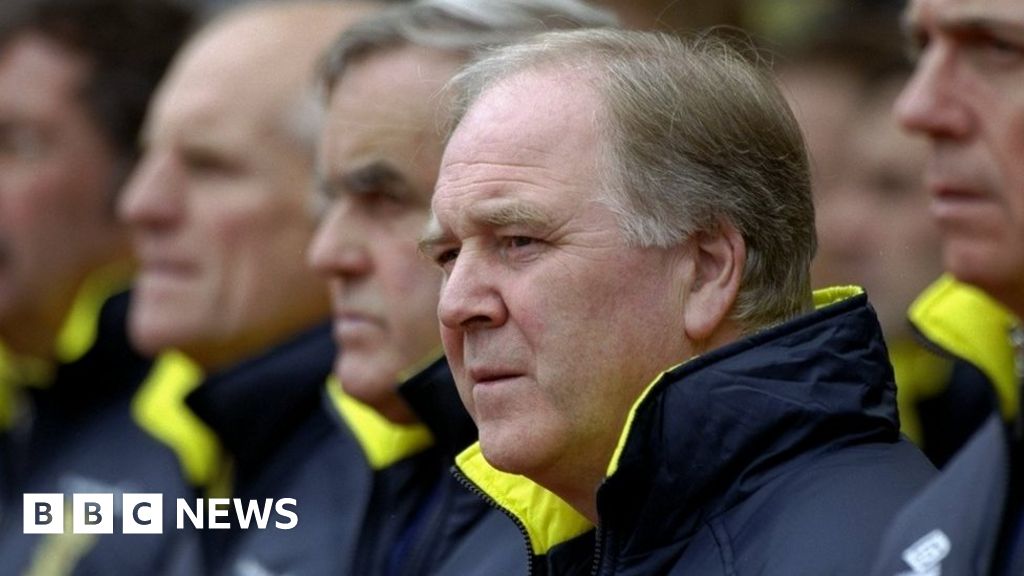[ad_1]
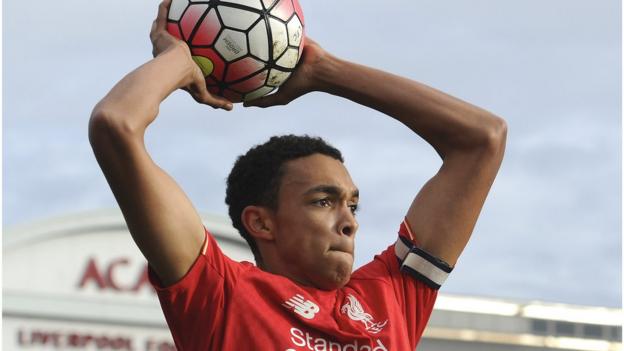
Warning: This article contains a reference to suicide
“I’ve seen their life shattered in front of me.”
Liverpool’s Trent Alexander-Arnold knows he is one of the lucky ones.
Premier League champion, Champions League winner, England international. The 24-year-old defender has dedicated almost two decades – since joining Liverpool aged six – to reach the very top of the game, with all the glory and financial rewards that come with it.
But for every Trent Alexander-Arnold there are hundreds of thousands of youngsters whose dreams falter – and the affects can be devastating.
In an Instagram post in February 2022, Alexander-Arnold revealed he had seen the impact being released by a football club as a teenager can have, having grown up alongside some youngsters who did not make the grade at Liverpool’s academy, and appealed to young players with similar experiences to come forward.
Now, a little over a year later, Alexander-Arnold tells BBC Breakfast’s Sally Nugent why he is ready to help.
‘It’s time for change’
It is estimated that of the 1.5 million players who are playing organised youth football in England at any one time, around 180 – or 0.012% – will make it as a Premier League professional.
More than three-quarters of academy players are dropped between the ages of 13 and 16.
For some the consequences can be devastating, with the issue brought into sharper focus by the death of former Manchester City youth player Jeremy Wisten.
Wisten was 18 when he took his own life in October 2020, less than two years after he had been released by City.
“I’ve seen first-hand the struggles and difficulties players have when they’re released from football clubs and it’s gone on too long and now it’s time for change,” Alexander-Arnold says.
In response, Alexander-Arnold is launching the ‘The After Academy’, an initiative focused on providing career opportunities to former academy players.
The scheme, run in conjunction with the Professional Footballers’ Association (PFA), will partner with companies to provide job opportunities for former academy players, who will be supported throughout the application process.
“For me, the After Academy is a dream and in that dream it’s quite simple really: I want any kid or any footballer who gets released from a football club to have somewhere to turn to.”
The Premier League issued new guidance this season stating that all club academies should provide a three-year ‘aftercare’ plan for every player that is let go between the under-17 and under-21 age ranges.
And it has its own under-16 development programme for youngsters who are released by clubs.
A recent 10-year report into the Premier League’s Elite Player Performance Plan (EPPP) said: “It is the unavoidable reality of the pathway that the majority of young people will leave the academy system without a professional playing career.
“Therefore, it is important to manage expectations… the chances of progression represent the reality of elite sport rather than a failure of the academy system.”
‘It left me feeling a bit lost’

“I wanted to play at Anfield. I wanted to play at big stadiums but at a young age like that I never thought it would be realistic.”
A young Trent Alexander-Arnold had big dreams and big ambitions when he joined the Liverpool academy at the tender age of six.
Alexander-Arnold made his senior Liverpool debut shortly after his 18th birthday in October 2016 and within 12 months had established himself as a key component of Jurgen Klopp’s first team.
He was won seven major honours with the Reds to date, as well as earning 18 England caps.
But others are not so lucky.
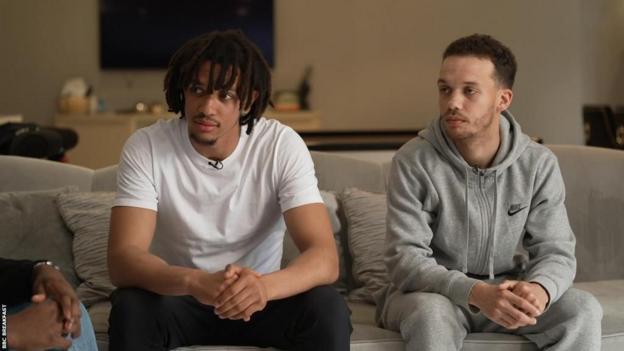
Liam Robinson, from Preston, played alongside Alexander-Arnold at the Liverpool academy and is now a drainage operative at United Utilities.
“It was constant football, football, football. Just dedicated. Everything I did was related to football,” he tells BBC Breakfast.
“I had a plan and a dream to be a professional footballer whether that was at Liverpool or not. So I didn’t plan for anything else as I was so focused on my number one dream.
“Year 10 or 11, I was told I was going to be released.
“To be honest that was probably the first heartbreak I’ve ever gone through. I can remember going back to the changing rooms and just bursting into tears. It felt like everything you had worked for, everything you had sacrificed, in that moment it genuinely felt like it had all been taken away from you and there was nothing left.”
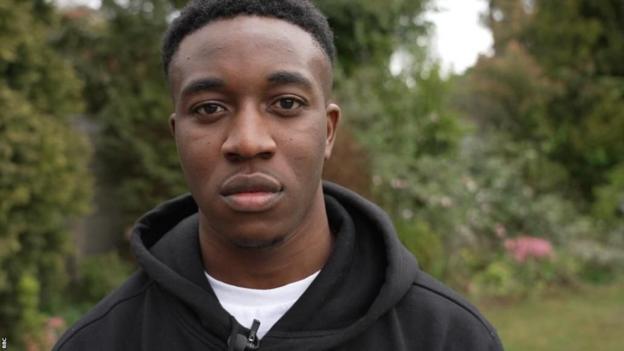
Josh Agbozo, from Liverpool, played alongside Alexander-Arnold at Liverpool’s academy for eight years and is now an occupational therapy assistant.
“We were really close friends from the age of nine and up until 16 shared the same journey really, and it was a joy playing together as kids,” he tells BBC Breakfast.
“Being an academy kid was exciting, it was challenging, but you felt like the top kid. It also came with pressure, but I enjoyed it.
“I was released at 16, had loads of injuries so I wasn’t able to really show what I thought I could do.
“It was tough, being let go, left me feeling a bit lost and unsure what I could do next.”
For former players like Robinson, the feeling of rejection continues to follow them around long after they left the training ground for the final time.
“I don’t think unless you’ve lived it you truly understand it,” he adds.
“I get passed jokes so many times, ‘Oh you used to play for Liverpool and now you’re doing this’. People pass judgement and they can’t think how such a comment like that can actually affect someone.
“My industry it’s sewers, it’s drainage so you do get a lot of those side jokes and it’s light-hearted, people doesn’t think it affects you, but it takes effect.
“It makes you feel like you are worthless or you should be doing better.”
‘We’re not just moving pieces, we’re humans’
For Alexander-Arnold, stories like Liam’s and Josh’s are sadly a familiar tale.
After his Instagram appeal, he was inundated with messages from other former footballers who struggled after being released, fuelling his desire to provide more support.
One player who contacted Alexander-Arnold spoke of their “embarrassment” at being released. Another felt like they had “no purpose beyond being a footballer”, while another said he and his family had gone through “hell”.
Alexander-Arnold hopes his new venture will provide a ‘safety net’ for released youngsters who feel like they have nowhere to turn, but also believes the system itself may need to change.
“We’re not commodities, we’re not just moving pieces,” he says. “We’re humans who are sacrificing a lot at a young age to even have a small chance at this.”
What is the existing support?
Premier League director of football Neil Saunders said that “ensuring the academy experience is a life-enriching one for every young player is a key part of taking a broader view of success”.
The Premier League’s EPPP was introduced in 2012 with the aim of producing more and better homegrown players.
The Premier League says player care is an “integral part” of programme, with one of its key objectives ensuring “every young player is better off for having been part of the academy system, whether they become a professional footballer or not”.
In total the Premier League says more than 150 specialist education and player care staff work across the system
In its EPPP 10-year report the Premier League said:
- 77% of Premier League academy player parents have moderate-to-high expectations that their child will become a professional footballer.
- Despite that, 89% of parents believed the overall academy experience was positive
- 86% of parents agreeing that clubs care about their child’s development beyond football
“The system does not define its success by the small minority of boys who have professional playing careers, but the positive development outcomes for the 100% that are all academy graduates,” the report said. “The academy system aims to educate, equip and empower boys to transition to successful careers beyond a professional playing career.”
The EFL has a similar set of regulations in place for its member clubs, with its Youth Development Rules requiring “personal development and life-skills training” for young players.
The EFL added that it is “committed to ensuring that involvement in the academy system is a safe and positive experience for all” with “provisions in place which help to prepare each individual for a life outside of professional sport”.
The EFL’s League Football Education programme, in association with the PFA, provides education opportunities for 16- to 18-year-olds including apprenticeships and A-Levels.
If you have been affected by the issues raised in this article, help and support is available via BBC Action Line.


[ad_2]
Source link



